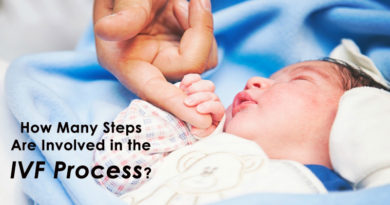Travel During Pregnancy: The Do’s and Don’ts
Is it ever OK to travel during pregnancy? As it turns out, you might be able to enjoy as much travel as you like during your first trimester and at least part of your second trimester. Options are more limited during your third trimester; travel gets harder as your size increases, and there are more associated risks, too. Read on for some helpful do’s and don’ts for traveling throughout your pregnancy.

Do take great care of yourself.
Rule number one: Make accommodations for your pregnancy symptoms while traveling instead of trying to “tough it out.” Keep in mind that stress, hunger, thirst, and other annoyances are magnified during pregnancy, and do your best to avoid them. Additionally, avoid the temptation to drink carbonated beverages before your flight takes off. The same gas bubbles that provide a pleasant tingle on your tongue can expand in your body while you’re flying, causing quite a bit of discomfort. If you want a fizzy drink, have it once you’ve reached cruising altitude.
Don’t travel if certain complications are present.
Travel can exacerbate certain pregnancy complications, increasing risk for both you and your little one. In most cases, travel is discouraged for women who have:
- preeclampsia
- risk of preterm labor
- premature rupture of membranes
Women who are expecting multiples are typically advised against travel.
Do select destinations with care.
Certain diseases like Malaria and the Zika virus can pose a serious risk to health, particularly for pregnant women. In the case of Zika, severe birth defects can happen if mom is bitten by a mosquito during pregnancy. When planning travel, check the Centers for Disease Control and Prevention Travel Health Notices to ensure that your destination is safe.
Don’t schedule any flights for after your 36th week of pregnancy.
In most cases, airlines will not allow women to fly after 36 weeks. Some flights, including many international ones, don’t allow travel after 28 weeks. Be sure to check into the airline’s policies early on in your trip planning phase.
Do reduce your risk of deep vein thrombosis (DVT).
Long trips typically involve long stretches spent sitting in one position, which can increase the risk of deep blood clots. DVT can affect anyone, but pregnant women have a higher risk than most others. Staying well-hydrated, avoiding tight clothing, and taking frequent breaks to stretch and walk around are easy ways to cut the risk. Try to book an aisle seat, as it will make life quite a bit easier for you.
Don’t keep up a hectic pace.
Expect travel to take a bit longer when you’re pregnant, particularly if you are planning for a long road trip. You’ll need to take more stops than you did before you became pregnant, and you’ll need to spend a shorter amount of time in the car each day. Be sure that your travel companions know what to expect.
Do plan carefully.
Be sure to let your doctor know that you’re planning to travel, and ensure that he or she has no misgivings about your trip. Double-check your packing list to ensure that you have everything you need, including plenty of comfortable clothes, important paperwork, and snacks to keep you satisfied in case nothing suitable is available.
Sources:
https://www.acog.org/patients/faqs/travel-during-pregnancy
https://www.nichd.nih.gov/health/topics/pregnancy/conditioninfo/Pages/complications.aspx
https://wwwnc.cdc.gov/travel/notices/
http://www.cnn.com/travel/article/economy-class-syndrome-guidelines/index.html
http://www.deliciousbaby.com/journal/2009/may/13/traveling-while-pregnant-babymoon-packing-list/



